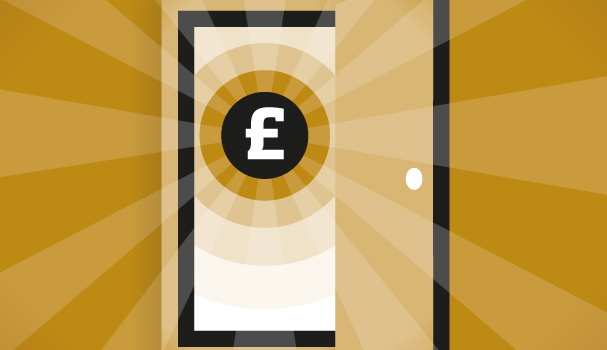Stumping up the cash to fund a new venture is usually the biggest headache for budding entrepreneurs. Failure to secure that crucial bank loan can see their big idea consigned to the scrapheap. Of course, the bashing that the banking sector has taken in recent years has hardly helped matters, with many a business owner seeking alternative sources of finance at the outset.
However, whilst there may appear to be a reluctance from entrepreneurs to approach their bank manager nowadays, the resounding message from these financial institutions is that they are very much open for business. Nowhere is this truer than in franchising, a sector that has proved resilient throughout the recession and that still holds a particular attraction to banks across the country.
Such is the very nature of franchising, it is relatively easy to understand why financiers are more willing to take a punt. “There is generally less risk to a bank in lending to a franchisee, providing the franchisee is from a good franchise,” says Chris Roberts, director of Franchise Finance, the finance consultancy. “A good franchise will have a record and be able to demonstrate to the banks that their franchisees have been trading for quite some period of time, they are profitable, they get the support that they need and they are able to work within a set business model.”
The stats speak for themselves. According to the 2013 NatWest bfa Franchise Survey, overall franchise churn stood at 10% last year, with a mere 2.3% of that owing to financial failure. That failure rate is the lowest since the recession kicked in and demonstrates how franchisees are more likely to survive those first two years than the plucky souls who attempt to start their own venture from scratch. “Generally speaking, there is an extremely high failure rate of businesses in the first couple of years if they are not a franchise,” Roberts adds. “If somebody starts in business on their own, they don’t necessarily have that model to follow or the support, and therefore it is a lot more risky.”
It is not difficult to gauge why franchising has been as resilient as it has in the downturn. Of course, that’s not to say simply being a franchisee will automatically bring the magic green light from the bank. However, with all the right boxes ticked, securing finance shouldn’t be all that taxing for a franchisee. “The reality is if you have a very good professionally-produced business plan that sets out exactly what you need to borrow, why you need to borrow it, how you are going to pay it back, and demonstrates that the business is viable, the banks will lend,” says Roberts. “It is just a question of understanding how the banks work, putting the proposition together in the correct way and thoroughly demonstrating its viability.”
Clearly, having the support of an established franchisor behind you can also work wonders when it comes to approaching the bank. As Colin Chadwick, director of franchise development at NatWest, explains, it can help provide peace of mind for all concerned. “It is a tri-partite arrangement whereby the bank gets involved and the franchisor is involved and the franchisee is involved,” he says. “When I am looking at a standalone proposition, I can only look at businesses in the same sector to get a guide of whether one’s financials are in the right ballpark. In franchising, when you give me your projections, I can look at what the franchisor says you’re doing, but I can also look at the 20 or 30 other connections I have got under that franchise system and say ‘you know what? They do that.'”
Banks will lend franchisees up to 70% of the initial start-up costs if necessary, with the franchisee providing the additional 30% or more. Not only does such a ratio ensure the franchisees can afford regular repayments – if profitability is as expected – but it also allows the banker to draw some more comfort from the individual in question. “If somebody comes to me with a 30% contribution, it tells me that in a previous life, they have been able to accrue a pot of money, so their income expenditure profile must have been positive,” says Chadwick. “And not only has it been positive, they have also been able to save instead of using that money for materialistic spend. It tells me a little bit about the person.”
The only conundrum left facing a franchisee who has a solid business plan and credit history is choosing the right bank. One could argue that this choice is what makes the finance-raising process as daunting as it is. However, Chadwick believes franchisees should have less to fear thanks again, in part, to the support on hand from franchisors. “A good franchisor will have relationships with a number of banks,” says Chadwick. “So when someone says they are looking to join a franchise, the franchisor will say ‘have you raised your finance? If not, this is where we suggest you go.'”
The strong relationship between banks and franchisors is undoubtedly beneficial to the franchisee. The banks are nonetheless one of many avenues down which a franchisee can turn, albeit the most common one. Roberts says that lease-purchasing and asset finance provide attractive alternatives, and also predicts that crowdfunding could soon jump on the franchise bandwagon. “The issue with crowdfunding at the moment is that a lot of the crowdfunders tend to want a business to have traded successfully for a couple of years,” he says. “But I think over time, as the crowdfunders learn more about franchising, they will start to understand that there is less risk and they will hopefully become more willing to lend.”
Of course, all lending decisions amount to a game of risk and reward, but a solid franchisee will more often than not find the odds stacked in their favour.”![]()

































